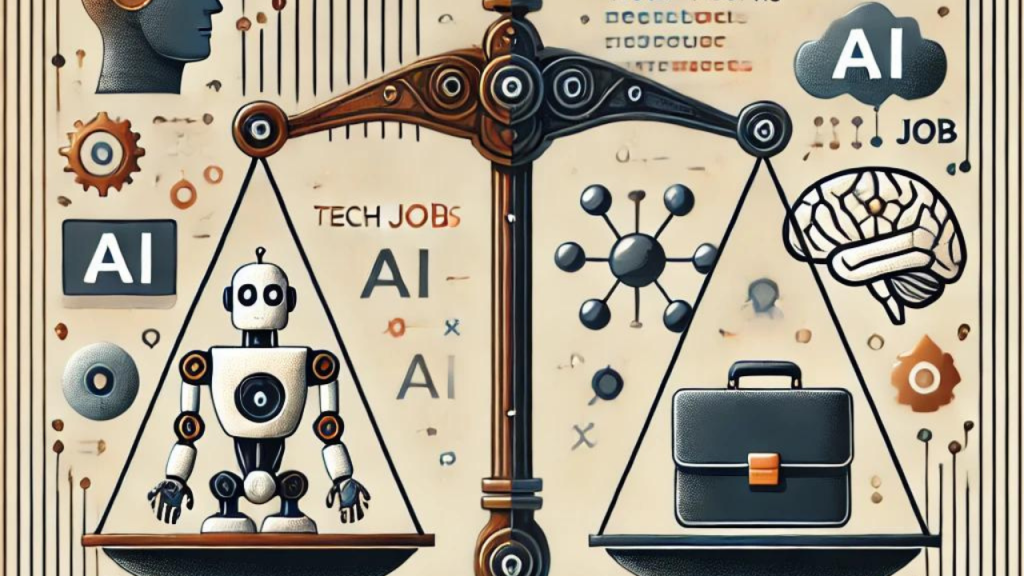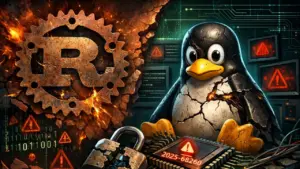Introduction
Welcome to StartupHakk! I’m Spencer Thomason, and here at StartupHakk, we are passionate about training software developers and building custom software solutions. With over a decade of executive leadership and 25 years in software development, I’ve honed my skills in transforming technology teams and products. Today, we’ll delve into a topic that’s crucial for all tech professionals: the impact of artificial intelligence (AI) on the tech job market, guided by insights from one of the industry’s most influential figures—Linus Torvalds.
Torvalds, the original creator of Linux, often offers a straightforward perspective on complex issues. Recently, he referred to AI as “auto-correct on steroids,” capturing its potential while also highlighting its limitations. In this blog, we will explore his thoughts on AI, its role in software development, and how it reshapes job opportunities within the tech landscape.
1. The Essence of Torvalds’ Perspective on AI
Linus Torvalds has a unique ability to cut through the noise surrounding technology trends. His analogy of AI as “auto-correct on steroids” emphasizes that while AI is indeed powerful, it remains imperfect. The core message is clear: AI should be viewed as a tool to augment human capabilities rather than a replacement.
This perspective is particularly vital in today’s rapidly evolving tech landscape. As developers, it’s crucial to embrace AI as an enhancement to our skill sets, allowing us to focus on more strategic and creative aspects of our work. Rather than fearing job loss, we should see AI as an opportunity to elevate our roles.
2. The Evolution of Programming
When Torvalds began his journey in programming, everything was done in assembly language. Fast forward to today, and he now writes in high-level languages, reflecting significant evolution in programming tools. This journey illustrates how technology has consistently evolved to improve efficiency while maintaining the necessity for skilled developers.
AI represents another step in this evolutionary path. It aids in streamlining processes, allowing developers to focus on complex problem-solving and innovation. As we integrate AI into our workflows, the essence of programming—rooted in human ingenuity—remains unchanged.
3. AI’s Role in Security
One of the most significant areas where AI can shine is in security. Torvalds acknowledges that AI can help identify vulnerabilities and automate responses to security threats. However, he stresses that human judgment remains indispensable when making critical security decisions.
The combination of AI and human expertise can enhance the security of software systems, making them more robust against potential threats. By leveraging AI, developers can quickly respond to security issues while ensuring that human intuition and creativity guide final decisions.
4. Open Source Contributions
As a staunch advocate for open source, Torvalds sees AI as a catalyst for increased contributions to this ecosystem. Companies like Nvidia are investing heavily in open source projects, driving innovation and collaboration. This influx of resources not only benefits companies but also enhances the entire tech community.
By harnessing AI, developers can contribute to open source projects more effectively, fostering a collaborative environment that promotes growth and learning. The synergy between AI and open source projects creates a win-win situation, providing ample opportunities for developers to innovate and excel.
5. AI in Hardware Development
AI’s impact is not limited to software; it also extends to hardware development. Torvalds discusses how AI can optimize hardware performance and assist in designing more efficient systems. This integration creates a growing demand for developers who can bridge the gap between software and hardware.
As the tech landscape evolves, understanding both fields becomes increasingly valuable. Developers who can navigate the intersection of software and hardware will find themselves in high demand, as businesses seek individuals capable of leveraging AI’s capabilities to enhance both aspects of technology.
6. The Myth of AI Replacing Jobs
Despite the prevailing hype, Torvalds remains skeptical about AI completely taking over jobs. Instead, he argues that AI will create more jobs than it eliminates. By automating mundane tasks, AI enables developers to focus on higher-level functions that require creativity and strategic thinking.
Industry trends support this perspective, showing increased demand for roles such as AI specialists, data scientists, and cybersecurity experts. The tech job market is not shrinking; it is evolving. Those who embrace AI as a tool rather than a threat will find themselves at the forefront of this transformation.
7. AI and Software Integration
Integrating AI into existing software systems presents unique challenges. Torvalds points out that while AI can generate code, it often struggles with system integration and delivering end-to-end solutions. This complexity highlights the ongoing need for human expertise in overseeing development processes.
AI can assist in streamlining these tasks, but it cannot replace the human touch. The future of software development lies in the collaboration between AI and developers, working together to create efficient and innovative solutions.
8. AI in Problem Solving
While AI excels at handling large datasets and performing repetitive tasks, it lacks the ability to tackle complex problem-solving independently. Torvalds emphasizes that human creativity and intuition are irreplaceable in software development.
AI can provide insights and suggestions, but the final decisions must rest with human developers. This collaborative dynamic enhances the development process, leading to better outcomes and new opportunities for growth in the tech job market.
9. The Role of Big Tech Companies
Big tech companies like Nvidia are playing a crucial role in advancing AI while contributing to the open source community. Torvalds views this as a positive development, as it drives innovation and resource sharing. The collaboration between big tech and the open source community fosters a vibrant ecosystem, helping democratize access to cutting-edge technologies.
This synergy not only benefits larger companies but also empowers smaller organizations and individual developers to innovate and compete in the market. The resulting environment is ripe for new ideas and solutions, creating opportunities for those willing to engage.
10. The Future of AI and Development
Looking ahead, Torvalds concludes that AI will be a powerful tool for developers, enhancing productivity and innovation. However, it will not eliminate the need for skilled developers. The combination of AI and human expertise will drive the next wave of technological advancements.
As we anticipate a rebound in the tech job market in the fall of 2024, with significant growth expected in 2025, developers who embrace AI and continually adapt to new technologies will thrive in this evolving landscape. The future is bright for those ready to leverage AI’s potential.
Conclusion
Linus Torvalds’ insights into AI’s impact on the tech job market reveal a landscape rich with opportunity. Rather than fearing job loss, developers should view AI as an enhancement to their skill sets and an opportunity to innovate. By embracing AI, we can elevate our roles, contribute to the open source community, and drive the future of technology.
I invite you to share your thoughts on this topic in the comments below. At StartupHakk, we’re dedicated to training software developers through our coding bootcamps and building custom software solutions. If you’re ready to take your skills to the next level, visit StartupHakk today and explore our resources. Don’t forget to check out our previous videos for hundreds of coding tips and FREE CODE SAMPLES!




